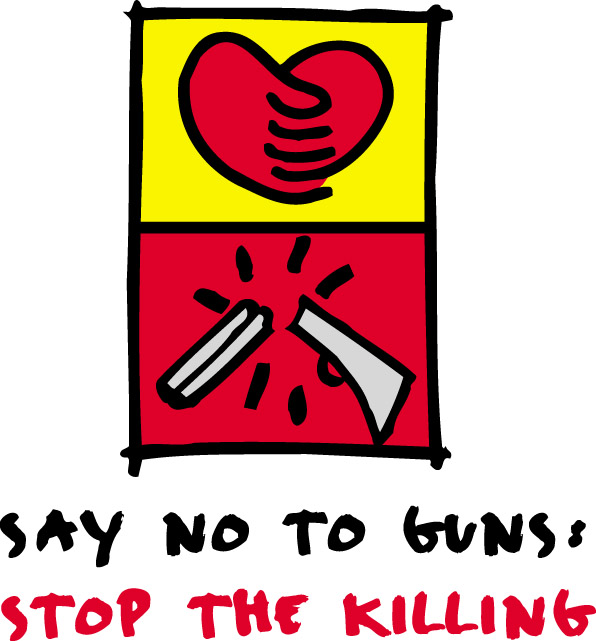 |
Centre for Humanitarian Dialogue
A copy of the full Press Statement from the newly launched Humanitarian Coalition 11 July 2001 Humanitarian Statement of Concern |
 |
|
Addressed to the UN Conference on the Illicit Trade in Small Arms and Light Weapons in All Its Aspects, 9-20 July 2001, United Nations, New York
1. Humanitarian, human rights, health and development workers witness the devastating effects of small arms proliferation on civilians all over the world. Providing relief to refugees and civilians displaced by war, facilitating development projects and the provision of medical services, mediating for humanitarian access and ensuring respect for human rights often place our organisations at the frontlines. These experiences have led us to believe that the uncontrolled proliferation and misuse of small arms and light weapons have contributed to a global humanitarian crisis - a crisis which results in approximately 500,000 deaths a year. 2. The proliferation of small arms and light weapons adds another unpredictable and lethal dimension to the activities of organisations dedicated to human rights, humanitarian, health and development work. The ability of workers to undertake their duties is increasingly constrained due to the threat and use of small arms, as many are kidnapped, assaulted and deprived of their liberty under the threat of a gun. 'More and more I am frightened to travel to the field. By air we go - small aircraft... by road, the risk of death and rape is very high. The worries before and during travel will leave a permanent impact on my health - long after I have left organisation X. I can't cope anymore.' Humanitarian worker, Uganda, 2000 3. The UN Conference on the Illicit Trade in Small Arms and Light Weapons in All Its Aspects provides governments with an historic opportunity to set high common standards and policies to address this scourge. 4. The right of states to buy and sell weapons for purposes of self-defence brings with it important responsibilities, including to respect and ensure respect for international human rights and humanitarian law. All too often in the past, the transfer of weapons to abusive military, paramilitary, security and police forces, whether arranged by arms brokers or directly by governments, has violated this obligation. The consequences have been devastating for millions of civilians around the world. 'There were about 12 of them all carrying Kalashnikov rifles with their faces covered. They asked us to give them our daughter. We refused to give her to them... One of them lifted his Kalashnikov and shot my daughter in front of our eyes. She was only 20 and was just about to finish high school.' Abbas Fiaz, 'Afghanistan: Atrocities against civilians', in Common Grounds: Violence Against Women in War and Armed Conflict Situations, 1998 5. Factors leading to the demand for small arms are multiple and complex and are related to problems of poverty, underdevelopment, human rights abuse, insecurity and injustice. Our organisations have long committed themselves to alleviating these realities. However, this work is undermined by the easy availability and violent misuse of small arms and light weapons. 6. Small arms and light weapons are almost all produced legally, often then moving through a series of legal or illegal hands. The UN Conference must examine all aspects of this flow, and governments must agree to create control mechanisms that meet their responsibilities--to their own citizens, to civilians around the world and to the international community. 7. We therefore call on all governments to take assertive and co-ordinated action to:
The results of this Conference will be judged by the degree to which they contribute to the safety, dignity and well-being of those who live under the shadow of armed violence. |
ActionAid Several of the above-signed organisations are part of the Humanitarian Coalition on Small Arms, a recent initiative to provide a focal point for advocacy and campaigning for the humanitarian, human rights, health and development communities. The Coalition comprises several organizations that participate in the International Action Network on Small Arms and also organisations beyond that network. |
ACT NOW!
![]()
Add your name to the online petition organised by IANSA, Oxfam GB and Amnesty International
and demand that governments take responsibility to stop the uncontrolled
spread and misuse of small arms and light weapons.
Click to sign the Online Petition!